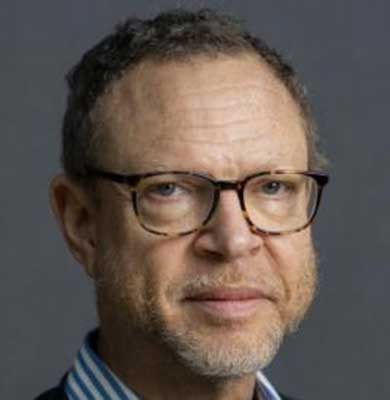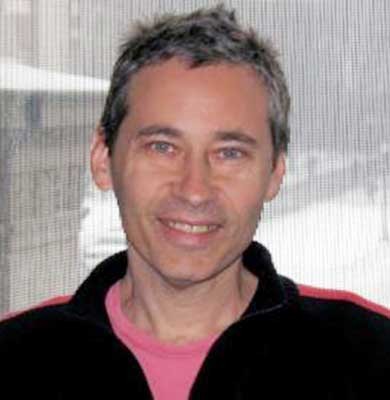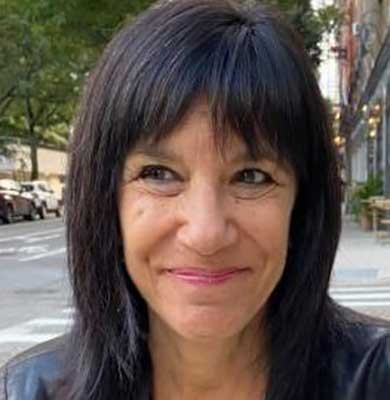Journalism — a profession that transcends borders.
Courses in the M.S. and M.A. programs — as well as unique opportunities afforded by the Li Center for Global Journalism and partnerships with international programs — provide the foundation for reporting intelligently and safely on a complex world.
Overview
Students learn as part of a truly international community – about 30% of those enrolled in the Journalism School come from outside the U.S. Recent classes have included students from Argentina, Australia, Brazil, Canada, Chile, China, Colombia, Costa Rica, Czech Republic, Egypt, France, India, Kazakhstan, Lebanon, Pakistan, Saudi Arabia, Iceland, Iran, Israel, Macedonia, Mexico, New Zealand, Nigeria, Sierra Leone, South Africa, Spain, Sri Lanka, Sweden, Syria, Thailand, Turkey, Uganda, U.K., Zimbabwe and many other countries.
This diversity strengthens the learning experience in and out of the classroom. Lively discussion in an ethics class, for example, may start with a study of American conflicts of interest, then examine the challenges of reporting from Mexico, Pakistan or other countries where journalists face dangers just for doing their jobs. M.S. courses also focus on transnational subjects such as migration, human rights, world religions, national security and global media trends.
Outside the classroom, #CJSGlobal programs brings students together for a wide range of events: informal discussions about international breaking news; a postcard campaign calling for release of imprisoned journalists; workshops on safety training; and panels on press freedom, covering conflict and working as a freelance foreign correspondent.
International Postgraduate Opportunities
Students have opportunities throughout the year to apply for international postgraduate programs, including a number of exclusive #CJSGlobal Journalism Fellowships.
The Journalism School and the Graduate Journalism Program at Sciences Po in Paris offer a dual degree program that allows students to study in two hubs of journalism and receive degrees from both institutions.
The Journalism School also shares the management of the Universitat de Barcelona BCNY Journalism program in Spain and contributes faculty members who offer specialized short courses in Barcelona.
Students enrolled in this program undertake a rigorous, one‐year curriculum, which in many ways resembles that of the Journalism School. The program is dedicated to producing journalists who demonstrate the same professional standards and sense of responsibility as their Columbia colleagues. The curriculum is taught in Spanish. Applicants who are fluent in Spanish and are unable to attend Columbia will regard this program as an interesting alternative.
BCNY Journalism is strongly supported by Spanish news organizations, many of which provide internship opportunities for the students. Typically, the student body is highly diverse, with representatives from several European countries, Latin America, Africa and the U.S.
Other opportunities that are popular with our students include the Overseas Press Club Foundation scholarships, which send graduates overseas to report for The Associated Press, Reuters, The Wall Street Journal and others. These are open to applicants from colleges and universities across the U.S., but of the 16 scholarship winners in 2018, six were Columbia Journalism School students.
Here are the #CJSGlobal Journalism Fellowships that are offered exclusively to our graduates:
Exclusive opportunities at the Journalism School include the following (more information on both of these can be found here):
Global Migration Project Reporting fellowships on gender and migration, focusing on U.S. immigration law, border politics, international refugee policy, and more.
Cross-Borders Data Project Three six-month fellowships supervised by Prof. Giannina Segnini, director of the M.S. in Data Journalism.
Other #CJSGlobal Exclusive Journalism Fellowships offered by media organizations:
ABC News David Jayne Fellowship: Broadcast/digital reporting fellowship; 12 weeks in London. Airfare provided.
Al Jazeera Media Network: Three-month fellowship starting in September provides an opportunity for two graduates to work at Al Jazeera's English headquarters in Doha, Qatar. Details pending.
The Reuters Institute at University of Oxford: Oxford U.K.: A three-month fully-funded program for two graduates who wish to take advantage of the resources at Oxford and the Reuters Institute to work on a story or stories.
Coda Story: Six-to-nine month journalism fellowship program in Tbilisi, Georgia.
Eurasianet: Summer Editorial Associate who will focus on reporting on Eurasia, including Russia, Ukraine, the South Caucasus and Central Asia. Depending on the candidate, the editorial associate may do some reporting abroad.
Grupo Clarín: Up to three interns based at Clarín/Clarín.com: Ten weeks in the summer in Buenos Aires.
La Stampa: Two to three reporting interns for 12 weeks in summer; includes weekly salary, housing and transportation to Turin and Rome, Italy.
Classes
Journalism School students have a range of opportunities to study and report on international issues. In the M.S. program, several fall semester Reporting professors assign students to beats covering New York City's many ethnic communities; and the Friday classes on history, ethics, media law and business of journalism include discussions related to global media and international journalists.
Spring classes offer additional international curriculum opportunities. The current class offerings include courses on using data to investigate across borders; on covering armies and spies around the world; and on covering global migration issues facing women and girls. Some M.S. students work on internationally-themed Master's Projects, and everyone in the Covering Religion class takes a trip abroad over Spring Break. Past destinations include Italy, Russia, Jordan and Palestine, India, and Israel.
The M.A. seminars-in-concentration frequently cover international issues and many M.A. students report abroad for the thesis. M.A. students may also select subject-area courses focused on international subjects.
Student Work
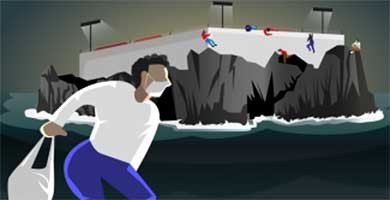
Marco Dalla Stella, '21 M.S., reported his master's thesis on conditions in Italy's privatized migrant detention centers. It was published by Frontiere News.
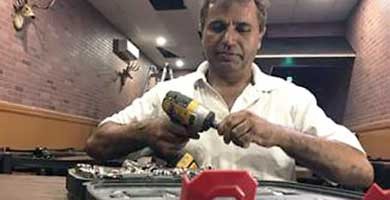
Wufei Yu, '19 M.S., reported on the struggles of Nepali immigrants facing deportation after the Trump administration announced an end to Temporary Protected Status (TPS) for Nepalis this summer as an assignment for professor Dale Maharidge's Reporting class. The article was published in the Kathmandu Post, one of the largest English language papers in Nepal.

For his master's project, Darkhan Omirbek, '19 M.S., profiled a 102-year-old Kazakh woman living in Virginia after fleeing her homeland during the Soviet collectivization project in the 1920s and then fleeing Soviet power again after the Soviet Union's military intervention in Afghanistan in 1979.



